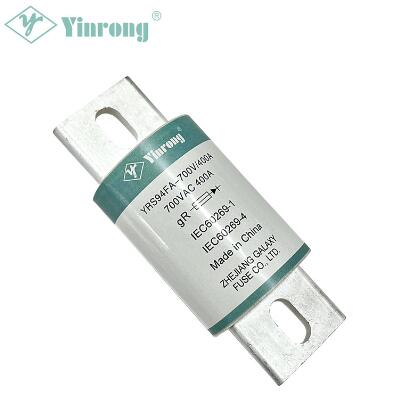Primary Applications of High Speed Fuses in Industrial Settings
2024-06-13
High Speed Fuses play a critical role in safeguarding sensitive equipment and ensuring the reliable operation of industrial systems. Designed for rapid response to overcurrent conditions, these fuses protect delicate electronic components, minimize downtime, and enhance overall system safety. In this blog, we explore the primary applications of High Speed Fuses in various industrial settings, highlighting their importance in modern electrical engineering.
Protecting Semiconductor Devices
Semiconductors
Semiconductor devices, such as diodes, thyristors, and transistors, are integral to numerous industrial applications. High Speed Fuses are essential for protecting these components from overcurrent conditions that can cause immediate damage. By reacting within milliseconds, High Speed Fuses prevent the catastrophic failure of these devices, thereby ensuring the longevity and reliability of power electronic systems.
Power Electronics Systems
Inverters and Converters
Inverters and converters are key components in industrial power electronics, responsible for converting electrical energy into usable forms. High Speed Fuses are used extensively in these systems to protect against short circuits and overcurrent events. Their fast response times ensure that any faults are quickly isolated, preventing damage to other components and minimizing the risk of costly downtime.
Power Supplies
High Speed Fuses are also critical in the protection of power supplies. These fuses ensure that any overcurrent conditions are swiftly addressed, preventing damage to the power supply and maintaining a stable power output to connected devices. This is particularly important in environments where continuous and reliable power is essential, such as in data centers and manufacturing plants.
Industrial Automation
Control Circuits
Control circuits are vital for the operation of automated systems in industrial settings. High Speed Fuses protect these circuits from overcurrent conditions, ensuring the precise operation of automated processes. By safeguarding control circuits, High Speed Fuses help maintain the accuracy and reliability of automated systems, reducing the risk of production errors and improving overall efficiency.
Drive Systems
Drive systems, which control the operation of motors and other mechanical components, are another key application for High Speed Fuses. These systems are prone to overcurrent conditions due to sudden changes in load or faults. High Speed Fuses provide rapid protection, preventing damage to the drive components and ensuring the continuous and efficient operation of industrial machinery.
Renewable Energy Systems
Solar Power Systems
In solar power systems, inverters play a crucial role in converting DC power generated by solar panels into AC power for use in the grid or by end-users. High Speed Fuses are used to protect these inverters from overcurrent conditions, ensuring the safe and efficient operation of solar power installations. By minimizing the risk of damage, these fuses help maximize the lifespan and reliability of solar energy systems.
Wind Power Systems
Similar to solar power systems, wind power systems also rely on inverters and other power electronic components to convert and manage the energy generated by wind turbines. High Speed Fuses protect these critical components from overcurrent events, ensuring the reliability and efficiency of wind power generation. This protection is vital for maintaining the performance and safety of wind energy installations.
Electric Vehicle Infrastructure
Charging Stations
Electric vehicle (EV) charging stations require robust protection against overcurrent conditions to ensure safe and reliable operation. High Speed Fuses are used in these charging stations to protect the power electronics and ensure the safe delivery of power to EVs. This protection helps prevent damage to both the charging infrastructure and the vehicles being charged, enhancing the overall reliability of the EV ecosystem.
Industrial Process Control
Instrumentation and Control Equipment
Instrumentation and control equipment are critical for monitoring and managing industrial processes. High Speed Fuses protect these sensitive devices from overcurrent conditions, ensuring accurate and reliable operation. By safeguarding instrumentation and control equipment, these fuses help maintain process stability and efficiency, reducing the risk of costly downtime and production losses.
Conclusion
High Speed Fuses are indispensable in various industrial applications, providing rapid and reliable protection for sensitive electronic components and systems. From protecting semiconductor devices and power electronics to ensuring the safe operation of renewable energy systems and electric vehicle infrastructure, High Speed Fuses play a vital role in modern industrial settings. Understanding their primary applications helps in selecting the right fuses for specific needs, enhancing the safety, reliability, and efficiency of industrial operations.


